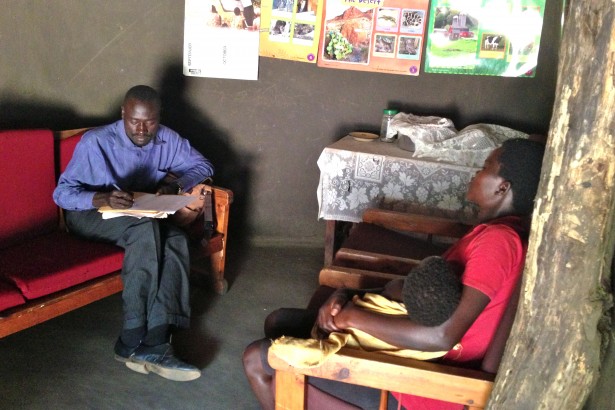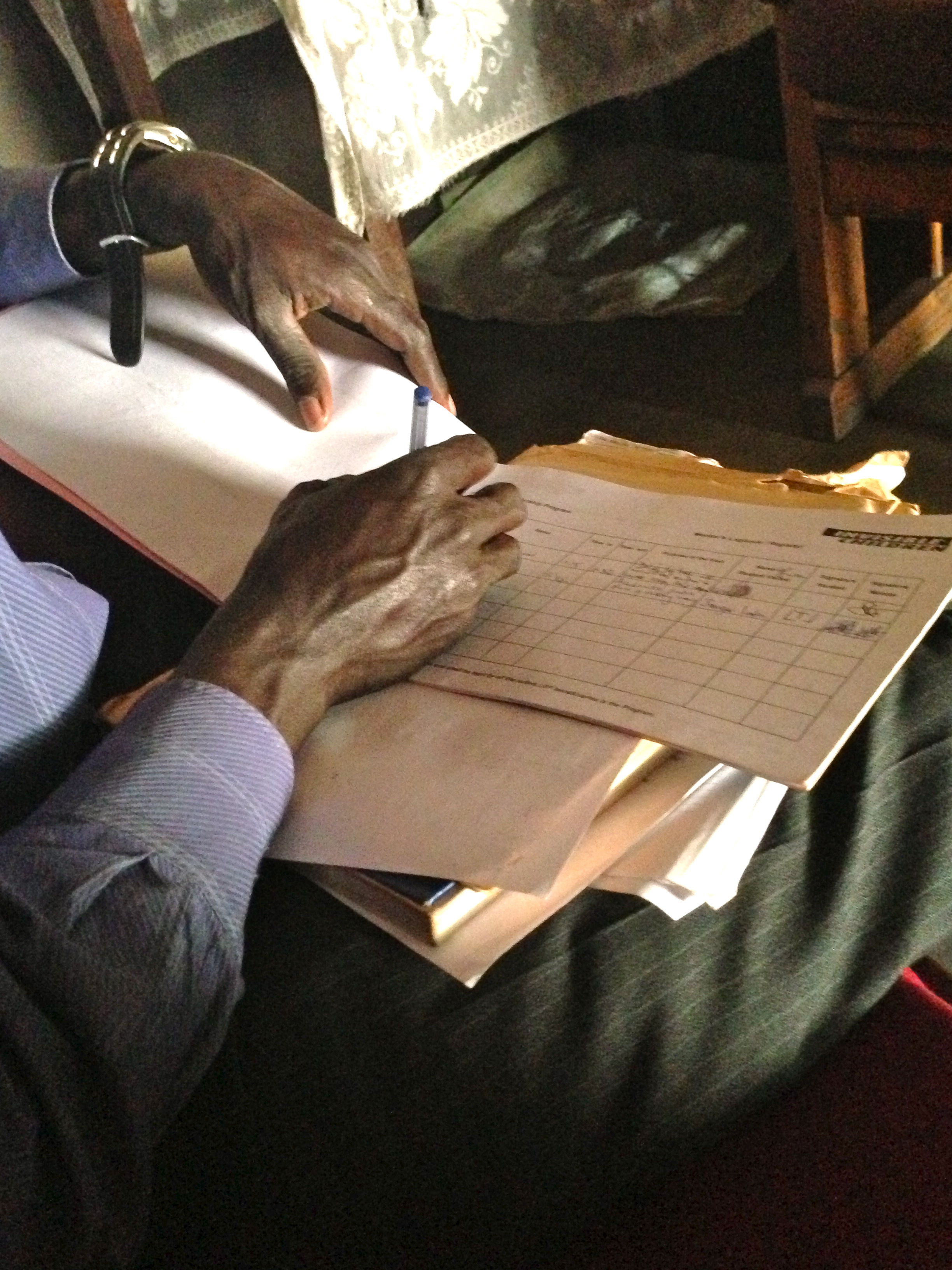As a fresh new member of the Invisible Children Uganda team, I have spent much of the last two weeks learning the ins and outs of our Recovery programs. Among this torrent of information, the “why” – the reason we do the work we do – is always the most apparent. It has become increasingly vivid as I’ve seen our programs in action.
Last week, I joined Richard Mark, a Legacy Scholarship Program mentor, on a home visit. The student was not home at the time, but Richard spoke with a family member to gauge how the student was doing. There is a process to each visit as mentors evaluate the physical and emotional well-being of the student and discuss factors that may impact his or her performance in school or require additional support.
Immediately, I noticed that the LSP pipeline does not connect only mentor and student. A triangle of sorts is at play. The stakeholders – ICU, a student’s home and family, and his or her academic life – all support the student’s educational achievement, overall health and future potential.
I was once told how important it is to commit to something and do it well before attempting anything else. It is a simple theory, but there are far too many programs with excellent intentions but a lack of holistic follow-through. One may wish to improve a child’s access to education, but is our program effectively helping to prepare the next generation of Uganda’s leaders? I think the fact that mentors hold conversations, perform constant evaluation and develop quantifiable metrics for each student does just that. This gets beyond test scores, makes a student more than just a number and ensures that he or she receives support both inside and out of the classroom.


Think people should hear about this?